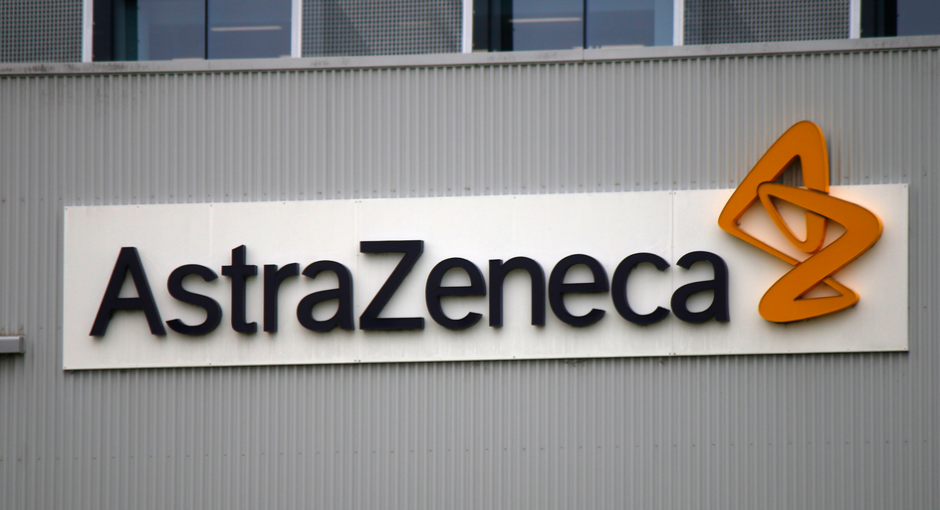The plain language of the 340B statute “explicitly requires drug manufacturers to offer 340B discounts to 340B covered entities regardless of whether the drugs are dispensed by the entity or by an outside pharmacy with which the entity has a contract,” six hospital groups told a federal district judge on Tuesday. The groups did so in a friend of the court brief filed in drug maker AstraZeneca’s lawsuit against the government over 340B contract pharmacy requirements.
Also on Tuesday, lawyers for U.S. Health and Human Services (HHS) Secretary Xavier Becerra asked U.S. District Judge Leonard Stark either to dismiss AstraZeneca’s suit against HHS or to rule summarily in Becerra’s favor. AstraZeneca wants the court to strike down HHS’s December legal advisory opinion that manufacturers that have signed a 340B pharmaceutical pricing agreement must offer outpatient drugs at or below 340B ceiling price to covered entities without regard to how those drugs are dispensed. AstraZeneca, and three other drug companies in separate lawsuits, argue that contract pharmacies are not covered entities under the 340B statute and thus are not entitled to 340B pricing.
Yesterday, Stark agreed to let the National Association of Community Health Centers (NACHC), Ryan White Clinics for 340B Access (RWC-340B), and two 340B covered entities file a friend of the court brief in the case. All have separately filed 340B administrative dispute resolution (ADR) petitions against AstraZeneca over its denials of 340B pricing on drugs dispensed by contract pharmacies.
Hospital Groups’ Brief
Late last month, Stark denied the six hospital groups’ motion to be named third parties to AstraZeneca’s suit against the government. He did, however, let them file a brief stating their arguments, and left the door open to possibly letting them intervene in the case in the future.
The group told Stark in their amicus brief that the HHS advisory opinion is consistent with the plain meaning and HHS’s longstanding interpretation of the 340B statute. They said the statute requires manufacturers to provide discounts on 340B drug dispensed by contract pharmacies, and that since 340B’s inception, HHS “has never wavered” in interpreting the statute so.
The hospital groups rejected AstraZeneca’s assertion that its denials of 340B pricing on drugs dispensed by contract pharmacies are justified by its need to prevent drug diversion and duplicate discounts. They said the 340B statute gives manufacturers and HHS “effective tools to protect against diversion and duplicate discounts. AstraZeneca, they said, “has no authority to impose limitations on the availability of discounts to address those issues.”
Federal Government’s Brief
The federal government’s brief in the case Tuesday echoes the ones it filed last month in response to Eli Lilly and Sanofi’s lawsuits seeking to set aside the HHS 340B advisory opinion. Lilly and Sanofi also want judges to declare HHS’s 340B ADR system unconstitutional and illegal. AstraZeneca is not challenging the ADR system in its lawsuit.
As in the Lilly and Sanofi cases, the government told Judge Stark in AstraZeneca’s case that HHS’s 340B contract pharmacy advisory opinion was not reviewable and is time-barred by a six year statute of limitations. Even if it was reviewable, AstraZeneca’s claims would still fail for multiple reasons, including that the advisory opinion is an interpretative—not legislative—rule exempt from notice and comment requirements. The government also said AstraZeneca’s claims against the advisory opinion would fail because its obligation to offer 340B pricing to covered entities is imposed by the 340B statute, not the advisory opinion. The government also rejected AstraZeneca’s claim that the advisory opinion was arbitrary and capricious.
Health Centers and HIV/AIDS Clinics’ Motion and Brief
NACHC and RWC-340B last year sued HHS to force it to publish long delayed 340B ADR regulations, which the government did in December. When the rules took effect in January, NACHC filed ADR petitions against AstraZeneca, Lilly, and Sanofi over their denials of 340B pricing on drugs dispensed by contract pharmacies. Two health centers that are co-plaintiffs with RWC-340B filed ADR petitions against AstraZeneca.
In their motion in the AstraZeneca suit that was granted yesterday, NACHC, RWC-340B, and the two health centers said they “can provide the court with the unique perspective of federal grantees with limited resources that rely on 340B contract pharmacy arrangements to serve their patients, a viewpoint that is not represented” by anyone else involved in the case.
The hospitals groups that filed a friend of the court brief “do not typically operate on the shoestring budgets that make the use of contract pharmacy arrangements so critically important to federal grantees,” they said.
“The future of the contract pharmacy program will affect the Amici’s ability to continue to provide services to these communities, to provide discounted drugs to indigent patients, and to offer pharmacy services throughout their service areas for patients who cannot travel vast distances to obtain vital, life- sustaining medications,” they said.
In their brief, the health center and HIV/AIDS clinic friends of the court said “AstraZeneca seeks to reverse a program required by the 340B statute that it participated in for more than two decades.”
Deciding the case in AstraZeneca’s favor “will inflict significant harms on covered entities and their patients and compromise vital safety-net services throughout the nation,” they said.
Judge Stark has scheduled a June 7 hearing in the case.


